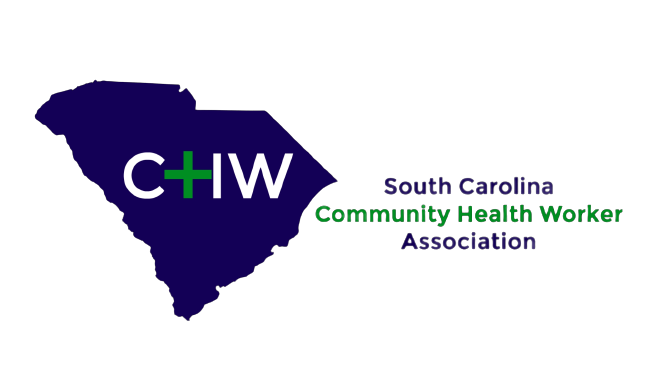Core Competencies Overview
To access the detailed Core Competency document, please click the download button below. This resource is essential for community health workers seeking to advance their skills and knowledge in the field.
Explore the comprehensive Core Competencies adopted by the South Carolina Community Health Worker Association (SCCHW) to enhance the effectiveness and professionalism of community health workers. These competencies encompass a wide range of skills, including communication, interpersonal relationships, service coordination, capacity building, advocacy, education, assessment, outreach, professional conduct, evaluation, research, and a broad knowledge base in health-related areas. These guidelines ensure that community health workers are well-prepared to meet diverse community needs, facilitate health services, and advocate for health equity.
SCCHW CORE Competencies
1. Communication skills
1.1 Use language confidently
1.2 Use language in ways that engage and motivate
1.3 Communicate using plain and clear language
1.4 Communicate with empathy
1.5 Use active listening skills
1.6 Prepare written communication, including electronic communication (e.g., email, telecommunication device for the deaf)
1.7 Document work
1.8 Use culturally appropriate communication skills when serving the community
2. Interpersonal and Relationship-Building Skills
2.1 Provide coaching and social support 2.2 Conduct self-management coaching
2.3 Use interviewing techniques (e.g. motivational interviewing)
2.4 Work as a team member
2.5 Manage conflict
2.6 Practice cultural humility
3. Service Coordination and Navigation skills
3.1 Coordinate care (including identifying and accessing resources and overcoming barriers)
3.2 Conduct appropriate referrals
3.3 Facilitate development of an individual and/or group action plan and goal attainment
3.4 Coordinate CHW activities with clinical and other community services
3.5 Track care and referral outcomes
4. Capacity Building Skills
4.1 Facilitate goal identification and maximize personal development of others
4.2 Facilitate individual empowerment
4.3 Network and build community connections
4.4 Teach self-advocacy skills
4.5 Describe Community organizing
5. Advocacy Skills
5.1 Advocate for individuals and communities
6. Education and Facilitation Skills c1
6.1 Use empowering and learner-centered teaching strategies
6.2 Use a range of appropriate and effective educational techniques
6.3 Identify differences between teacher-centered and learner-centered instruction
6.5 Seek out appropriate information and respond to questions about pertinent topics
6.6 Identify and share requested information
6.7 Collaborate with other educators
6.8 Collect and use information from and with community members
7. Individual and Community Assessment skills
7.1 Participate in individual assessment through observation and active inquiry
7.2 Participate in community assessment through observation and active inquiry
8. Outreach skills
8.1 Conduct case-finding, recruitment and follow-up
8.2 Prepare and disseminate materials
8.3 Build a current resources inventory
9. Professional Skills and Conduct
9.1 Set goals, develop and follow a work plan
9.2 Balance priorities and manage time
9.3 Apply critical thinking techniques and problem solving
9.4 Use appropriate technology
9.5 Pursue continuing education and life-long learning opportunities
9.6 Maximize personal safety while working in community and/or clinical settings
9.7 Observe ethical and legal standards (e.g. CHW Code of Ethics, Americans with Disabilities Act [ADA], Health Insurance Portability and Accountability Act [HIPAA])
9.8 Identify situations calling for mandatory reporting and carry out mandatory reporting requirements
9.9 Participate in professional development of peer CHWs and in networking among CHW groups
9.10 Establish personal boundaries and practice self-care
9.11 Participate in continuous quality improvement
10. Evaluation and Research Skills
10.1 Identify important concerns and better understand root causes
10.2 Recognize the evidence-based practices of Community Based Participatory Research (CBPR) and Participatory Action Research (PAR)
10.3 Participate in evaluation and research processes including:
10.3i Identify priority issues
11. Knowledge Base
11.1 Describe social determinants of health, related disparities, and the concept of health c2 equity.
11.2 Describe pertinent health issues
11.3 Describe healthy lifestyles and self-care
11.4 Describe mental/behavioral health issues and their connection to physical health
11.5 Describe health behavior theories
11.6 Describe basic public health principles
11.7 Describe the community served (including assets)
11.8 Describe the United States health and social service system
